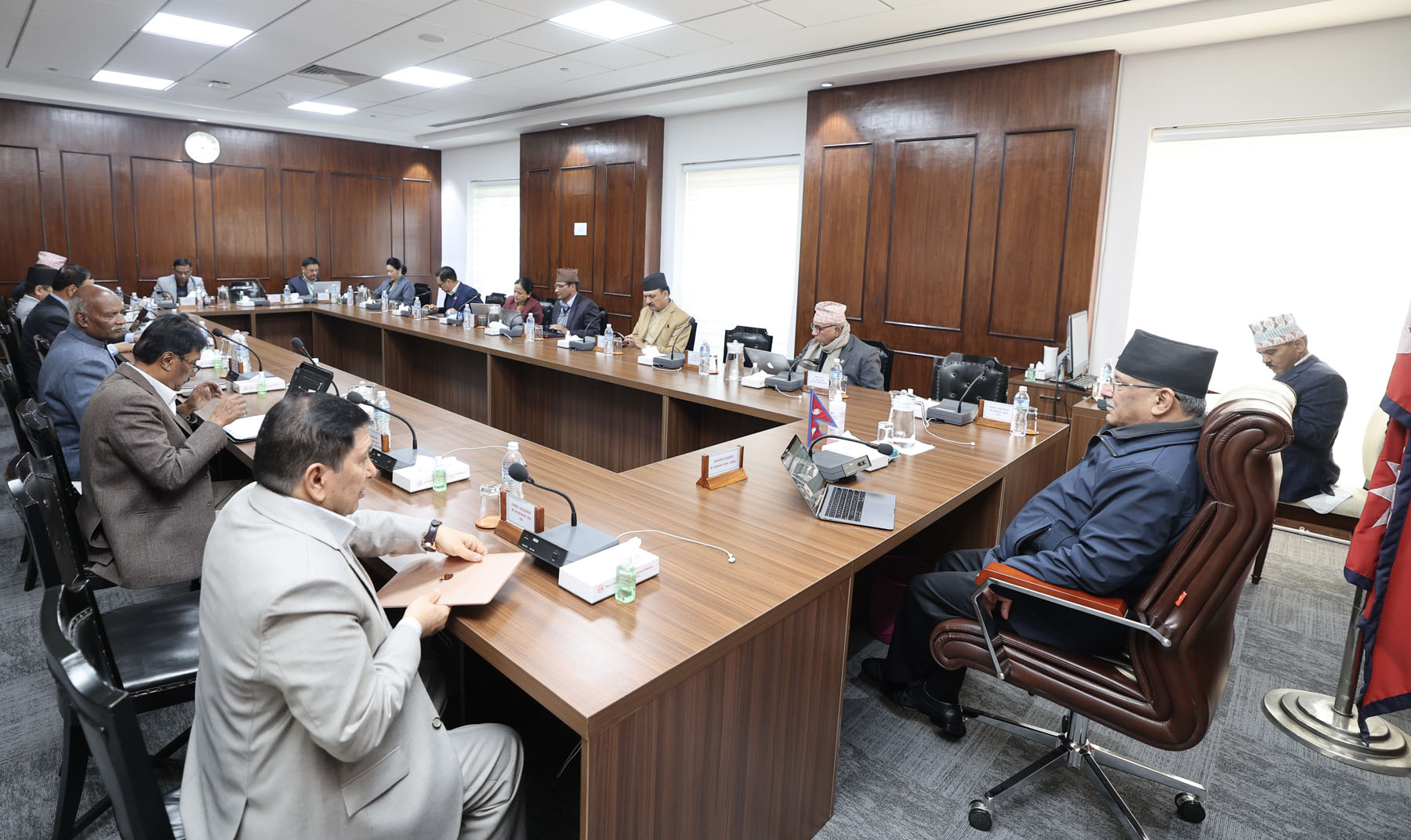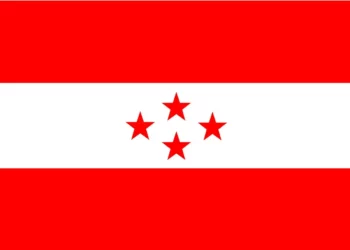KATHMANDU: Prime Minister (PM) Pushpa Kamal Dahal “Prachanda”, in his bid to enhance government efficiency, finds himself in a dilemma as coalition parties, particularly the Nepali Congress (NC), resist an immediate ministerial reshuffle proposed by him.
In the current coalition government led by PM Dahal, the Maoist Center has 5 ministers, Nepali Congress has 9 ministers, and Unified Socialists and Janata Samajwadi Party each have 2 ministers, while the Loktantril Samajwadi Party (LSP), Nagarik Unmukti Paryt, and Nepal Samajwadi Party have one minister each.
On his one-year anniversary as Prime Minister, Dahal expressed dissatisfaction with the government’s progress and announced plans for a cabinet reshuffle within a month.
However, resistance from coalition partners, notably the Nepali Congress, poses a challenge.
Chairman Upendra Yadav states, “The Prime Minister has not indicated any dissatisfaction with the ministers from JSP. Our ministers are performing admirably. While we do not plan to recall any ministers, we won’t hinder the Prime Minister if he wishes to make changes.”
Nepali Congress, the largest party in the coalition, is reluctant to support an immediate ministerial change.
NC President Sher Bahadur Deuba rejected Prime Minister Dahal’s proposal during discussions.
Min Bishwakarma, a central member of the Nepali Congress, emphasized that in a coalition government, ministerial changes must be a collaborative decision among coalition parties.
While there’s a prevailing opinion within the Nepali Congress favoring the recall of most ministers, NC President Deuba advocates against an immediate reshuffle.
Bishwakarma clarified that the Nepali Congress aims to maintain the status quo until the General Committee meeting.
The announcement of a cabinet reshuffle prompted unease among ministers, triggering a competition within the party to secure positions.
Some ministers have lobbied the Prime Minister to retain their roles, emphasizing their achievements through press conferences.
Criticism within the Nepali Congress, especially regarding ministerial performance, has intensified.
Despite the party’s inclination toward recalling ministers, NC President Deuba’s resistance stems from a strategic perspective to maintain influence in the upcoming general committee meeting.
Divergent views between Prime Minister Dahal and NC President Deuba further complicate the issue.
While Deuba advocates changing the Home Minister, Dahal insists on retaining the Finance Ministry within his party.
Despite this, Deuba supports the continuation of Finance Minister Prakash Sharan Mahat.
The ongoing disagreement raises questions about the government’s stability and effectiveness in the face of internal dissent within the coalition.
Fringe parties’ take on Cabinet reshuffle
As discussions on the cabinet reshuffle unfold, fringe political parties within the coalition government present varying perspectives.
Madhav Nepal, Chairman of the Unified Socialist Party, has voiced concerns about the immediate change of ministers within his party.
Sources reveal that Nepal urged the Prime Minister not to initiate immediate changes, emphasizing that such actions could send a negative message within the ruling alliance.
Instead, Nepal proposes the addition of a ministry to support his party’s interests.
Lobbying efforts are reportedly underway to appoint Rajendra Pandey as a minister while retaining the current minister.
A source close to the Unified Socialist Party indicates the party’s reluctance to support an immediate ministerial change, asserting that the ministers from their party have performed well in the government.
Similarly, the JSP, another coalition member, expresses readiness for a government minister reshuffle.
Despite giving instructions to subordinate agencies to enhance government efficiency, Dahal candidly admitted that the government under his leadership has struggled to make a tangible impact on the lives of ordinary citizens.
Chairman Upendra Yadav states, “The Prime Minister has not indicated any dissatisfaction with the ministers from JSP. Our ministers are performing admirably. While we do not plan to recall any ministers, we won’t hinder the Prime Minister if he wishes to make changes.”
Yadav emphasizes their willingness to contribute to smoother government operations.
On the other hand, the Janamat Party, led by CK Raut, which has been part of the government, is reportedly preparing to withdraw.
Dissatisfaction with the coalition has led Chairman Raut to announce the party’s departure from the Dahal-led government.
Raut cites a lack of space within the coalition as the primary reason for their decision to exit the union government, expressing discontent with the approach of Prime Minister Dahal and the JSP.
Challenges in coalition governance impacting PM Dahal’s work
When Prime Minister Dahal assumed office for the third time of the previous year, he pledged to lead with determination, emphasizing that this was his final opportunity to make a lasting impact.
However, his initial aspirations to make his third term remarkable have faced significant hurdles.
Acknowledging the challenges, Prime Minister Dahal admitted in his national address that the progress of his government did not align with the ambitious goals set at the beginning of his tenure.
Dahal, who initially severed ties with the Nepali Congress and formed an alliance with the UML to secure the prime ministership, faced political turmoil in the first three months of his term.
Despite efforts, effective governance remained elusive in the subsequent nine months.
Switching alliances, Prime Minister Dahal rejoined the Congress-led alliance after breaking away from the UML.
However, as he navigated the complexities of the political landscape, his government encountered challenges, with CPN-UML leaving the coalition on the 64th day. The Rastriya Prajatantra Party and Rastriya Swatantra Paryt also withdrew their support.
Although Prime Minister Dahal succeeded in maintaining his position as the third-largest party with 32 seats, his promise to deliver effective governance encountered roadblocks.
Despite giving instructions to subordinate agencies to enhance government efficiency, Dahal candidly admitted that the government under his leadership has struggled to make a tangible impact on the lives of ordinary citizens.
The prime minister’s resolve to leave a lasting legacy in his final term faces ongoing challenges within the intricate dynamics of coalition governance.









Comment